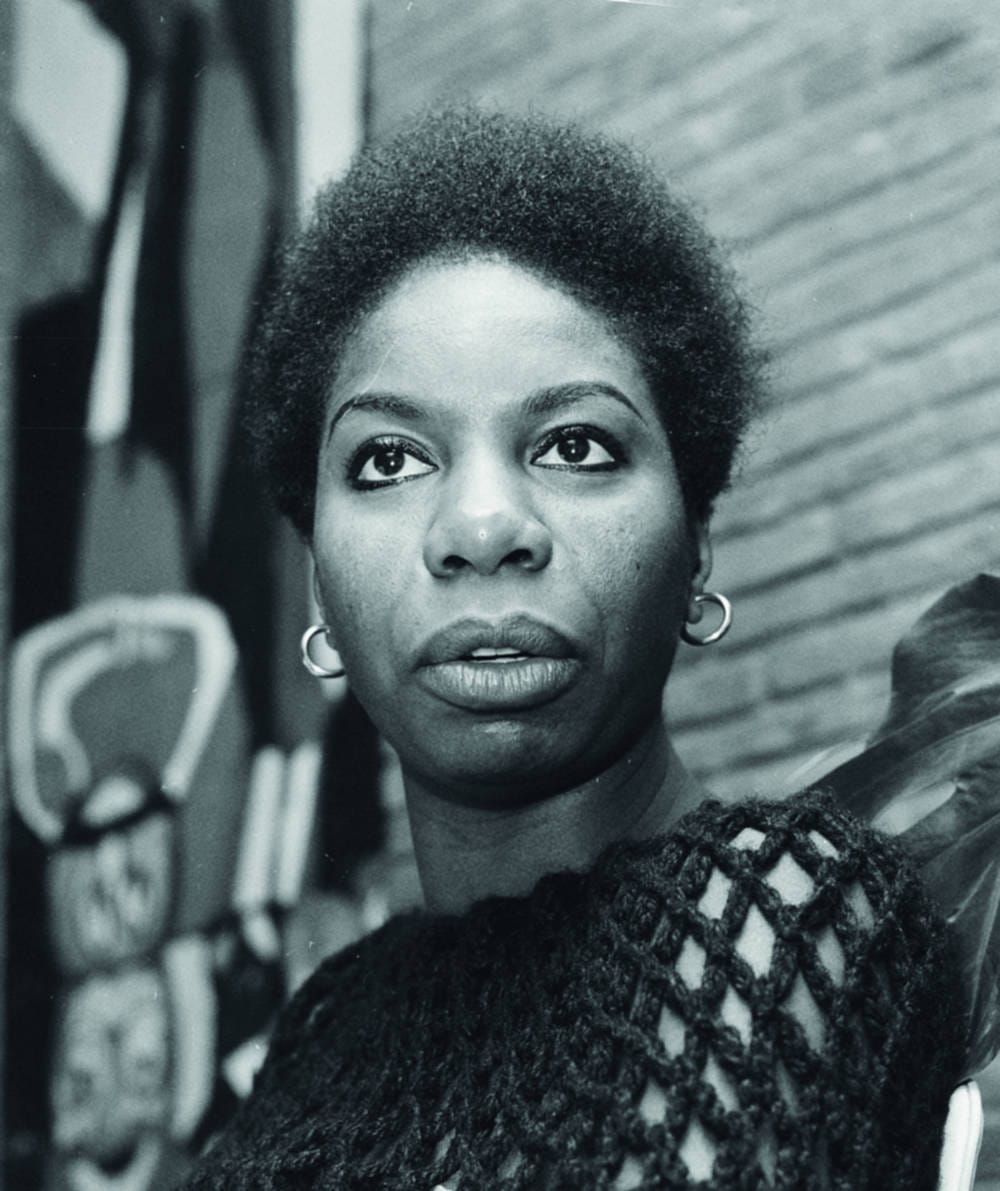The Unbearable Lightness of Zoe Saldana
Race, colourism and the estate of Nina Simone

Telling the story of turbulent genius Nina Simone on film was never going to be easy; Simone’s life was complex, and her music beloved by so many that any casting choice would be liable to ignite tensions. However, the controversy upcoming biopic Nina has stirred up would be enough to make hardened producers question their career choices. The issue? Casting Zoe Saldana, of Avatar fame, as Simone, which has led some commentators to argue that the racism and colourism that dogged Simone for her whole life have raised their ugly heads again.
But let’s back up a little here: the film was first announced in 2010, with legendary R&B musician Mary J. Blige stepping into the title role. Fast-forward to 2012, however, and Blige drops out – citing financial reasons – to be replaced by Saldana. This move was immediately greeted with anger at the fact that Saldana’s skin tone was several shades lighter than Simone’s, and her features far more European. The release of photographs a few months later, which showed Saldana in dark make -up, only served to deepen the anger. Since then the controversy has been quietly bubbling away, but came to the surface last week, when a new trailer was released – in the trailer, Saldana’s skin has been darkened, and a prosthetic nose attached, in order to achieve a more realistic portrayal of the singer. Simone’s estate hit out at Saldana on Twitter, telling her to ‘take Nina’s name out of your mouth. For the rest of your life.’
So, what’s the issue here? Well, those criticising the casting choice claim that the appointment of Saldana just reflects and reinforces the colourism present in mainstream Hollywood, and – indeed – the whole world. For those among us who are less woke: colourism, coined by writer Alice Walker, refers to the discrimination of people based on the shade of their skin; it is not the same as racism, since it does not rely on the intersection of multiple factors, such as cultural heritage and ancestry. Instead, it is the system that (typically) affords privileges to those whose skin colour most closely resembles that of Caucasians.
The effects of the system can be seen all over the world, from adverts for skin-lightening creams in India, to the ‘brown paper bag’ test practiced by certain African-American fraternities, who would not let in any individuals whose skin was darker than a paper bag.
It can be argued that the choice of Saldana reflects the greater value society places on light skin. Emma Dabiri, writing in The Telegraph, argues that ‘dark skinned women are so disregarded that they don’t even deserve to play themselves!’ – a sentiment that is echoed by Simone’s daughter, who said that ‘appearance-wise, this is not the best choice’. The problem with the casting is exacerbated by the details of Simone’s life: a child prodigy, she was denied a scholarship to the Curtis Institute of Music based on her race; aspiring to be a concert pianist, she instead had to play in jazz bars, where she developed her singing talents; throughout her career she faced down racism and colourism, singing songs like ‘To Be Young, Gifted, and Black’, and ‘Backlash Blues’. Her daughter says that ‘my mother was raised at a time when she was told her nose was too wide, her skin was too dark’ – her appearance was central to the events of her life, and many feel the choice of Saldana does an injustice to her memory.
Judd Apatow then waded into the debate, writing ‘I think all actors should only be allowed to play themselves. It is offensive to pretend to be other people’ in a tweet dripping with sarcasm. Queen Latifah echoed this sentiment, saying ‘I don’t see why [Saldana] shouldn’t play the role’. They reflect an oft-used counterargument to the claims above: that acting always involves pretending to be other people, and that the appearance of the actor shouldn’t relate to the individual they are playing: thus we have straight actors playing gay characters, cis actors playing trans characters, and Emma Stone can play a Chinese-Hawaiian woman.
However, the details of Simone’s life make it difficult to allay the concerns raised by Saldana’s casting. With her skin colours, and African features defining others’ attitudes to her music, shaping the current of her life, the producers could have made a better choice – an actor who better resembles Simone, such as Viola Davis, or Uzo Aduba, for example. Lupita Nyong’o has spoken about her insecurities with her skin tone, which were shattered when she saw model Alek Wek: ‘I couldn’t believe that people were embracing a woman who looked so much like me, as beautiful.’ Choosing to black-up a light skinned actor, giving her a prosthetic nose, just reinforces the message Hollywood sends out to dark skinned individuals: that they are not allowed to tell the narrative, not even their own.









